The German violist spoke to The Strad about her approach to presiding over a jury, what she looks for in contestants, and her views on competitions
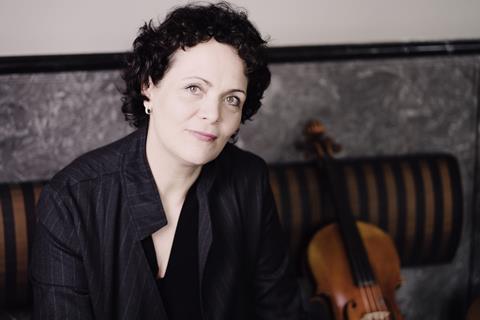
Discover more Featured Stories like this in The Strad Playing Hub
What are you most looking forward to about being on the Concours de Genève jury?
Being on the jury is one thing, but being president of a jury and also being involved in creating the competition programme is another. The whole thing has been a really great experience and the competition really understands young people’s wishes and goals and where to challenge them. It’s been a wonderful challenge to be involved in this process.
As president of the jury you choose the jury members – what do you believe they should bring to the table?
They should be only answering to their own values and convictions of what they believe is important in making music. Making music is so much more than playing the instrument. I was trying to get different people, from different backgrounds, and who have different priorities, whether that’s regarding virtuosity, musical tastes, or anything else. It’s very welcome. Otherwise, a competition can’t be fair.
So it can’t just be seven clones of yourself?
No! Poor competitors! I want each person on the jury to have their own idea of how we can best help young people. We also need to keep in mind the balance between the best presentation on the day and the competitor with the most potential. It then depends on what you value more. I think young people talk a lot about ‘what juries want’, but there’s no such thing as rules for a jury.
Out of the best presentation on the day and the most potential, which do you think has most value?
If I could answer that now I would make a decision not based on the people that come. I think that’s where it gets interesting. You can see people in the preselection video and see the potential. But if we choose them to go on, you’re taking a risk on whether they will be ready for the following rounds. It’s always based on a hypothetical.
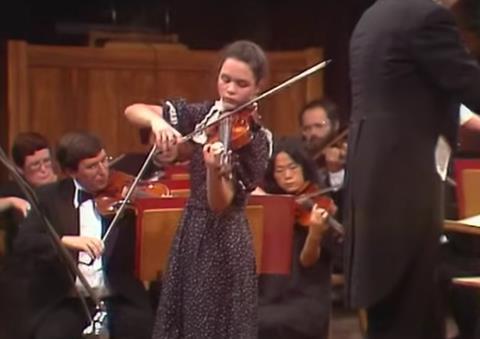
You won the Concours in 1982, what do you remember from that experience – especially considering you were so young!
Yes, I wasn’t even 16 and it was my first competition! In a way, it was the easiest for me because I had no expectations and pressure and I could go and enjoy it. But for the competitions I did subsequently, I felt that it wasn’t always the best thing to do, and my teacher didn’t care about how I felt. It wasn’t my decision and it made me quite angry. So it’s a subject I always bring up with my students now, because I don’t want to do that to them.
I think we can learn in many ways, and I have a mixed view of competitions. If you have a natural stage personality and can learn lots of repertoire in a limited time, and if you’ve solved your technical issues, found a nice instrument, then a competition may be right for you. But if you compete just because you want external approval which you’re not getting from yourself, it can be very damaging.
So in your opinion, competition success isn’t necessarily needed for a successful career?
No, because, really, what is success?
Perhaps ‘fulfilling’ is a better word?
Exactly. And that’s what I’m looking for in young people. Some people feel great on stage, some feel OK, and some feel less than OK! If it’s not your thing, that’s fine. You can be the greatest musician and not have this be your thing. You need to fulfil whatever is best for you.
What advice would you give for young players applying for the competition? What do you think they should be looking for in their competition experience?
Firstly, to stay optimistic, and present your musical and artistic vision. That’s what we tried to do with the competition programme. There’s room for an artistic personality to shine through. And yet the personality has to come with some technical skills. If someone is able to get through everything the competition asks, they must be really good!
What I really love from the side of the Concours is how much they encourage chamber music and new music. The fact that every few years they have a composition edition in order to have a work written for the next instrumental edition is amazing. The competitors also get the experience to play with amazing people like Corina Belcea, Christian Poltéra and others. These are opportunities that they might not get anywhere else.
Generally, I really want competitors to go home having had a positive experience even if they didn’t get into the final round. The competition is trying to offer things that can still make it a learning experience without having to win.
I want competitors to go home having had a positive experience even if they didn’t get into the final round
You spoke about jury members’ personal convictions – what are some of yours?
Everyone has to find the best balance between talent, discipline, positive vision, having social qualities, so many things come into it. The wish to keep learning, be open-minded but yet have something of your own. It’s a tricky thing to become the best version of yourself, and I want to find those who already know who they are. That’s why the demands for the competitors are pretty high. There will be repertoire me and my colleagues haven’t played or taught, and the young players will have to go through it themselves.
Of course, there are other, more technical, things I am looking for. If we talk about intonation, for example, then I want to see people making conscious decisions. What system of intonation? For Baroque music, for solo playing, for a Hindemith sonata? I want to listen to someone who is really aware of this and I can detect a system. I’d rather someone make a conscious decision I don’t agree with than someone playing ‘correctly’ by accident.
This extends to every aspect of playing really – sound production, vibrato, fingerings, can the player decide and control if a shift is audible or not? If something is always the same or they’re just copying their teacher, that’s not artistic.
What other parts of this competition specifically are you looking forward to?
I’m very interested to see the semi-final artistic projects. I think young people today are so much more skilled than ever before in lots of different disciplines. If I had to do that in 1982 I would’ve totally failed! It’s great that the competition stresses this versatility and then offers to really follow up with it.
Do you think this versatility is a must-have in today’s competitor, or is there just as much value in being very good in only one discipline but not so much in others?
Nowadays, versatility is more important than ever before. We honestly don’t know what kind of jobs will exist in ten years from now, or how many orchestras or chamber music series there will be. Being a responsible educator means offering programmes, competitions and teaching that opens the canon of pieces in such a way that young musicians must learn many skills to be open to as many jobs as possible. So if we demand contemporary music, that doesn’t necessarily mean that they will be playing only contemporary music in their career, but if they ever come in contact with reading new scores or being the first one to play a piece, it’s a skill you have to learn. For me it’s really about opening your mind to all possibilities.
Entries for the 2025 Concours de Genève viola edition close 10 April - click here to find out more and apply.
Read: Violist Tabea Zimmermann on the pressure of competitions
Read: Postcard from Switzerland: Concours de Genève String Quartet edition
Discover more Featured Stories like this in The Strad Playing Hub
The number one source for playing and teaching books, guides, CDs, calendars and back issues of the magazine.
In The Best of Technique you’ll discover the top playing tips of the world’s leading string players and teachers. It’s packed full of exercises for students, plus examples from the standard repertoire to show you how to integrate the technique into your playing.
The Strad’s Masterclass series brings together the finest string players with some of the greatest string works ever written. Always one of our most popular sections, Masterclass has been an invaluable aid to aspiring soloists, chamber musicians and string teachers since the 1990s.
The Canada Council of the Arts’ Musical Instrument Bank is 40 years old in 2025. This year’s calendar celebrates some its treasures, including four instruments by Antonio Stradivari and priceless works by Montagnana, Gagliano, Pressenda and David Tecchler.

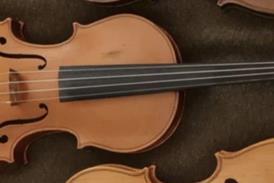
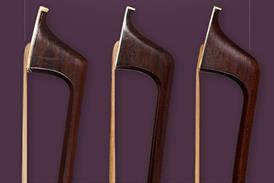
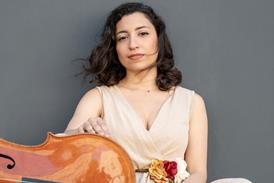
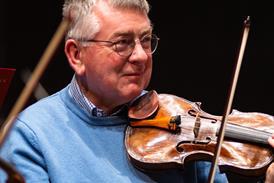
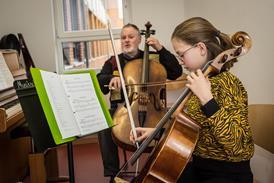
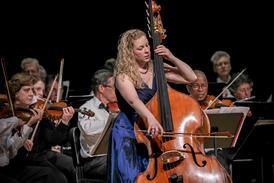



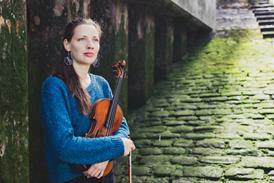

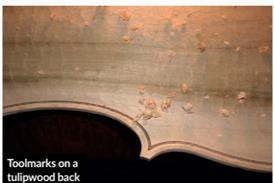
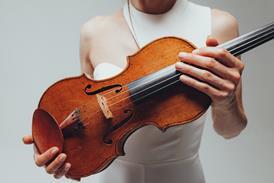
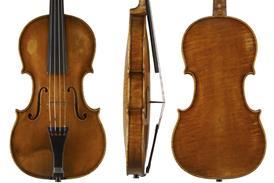























No comments yet